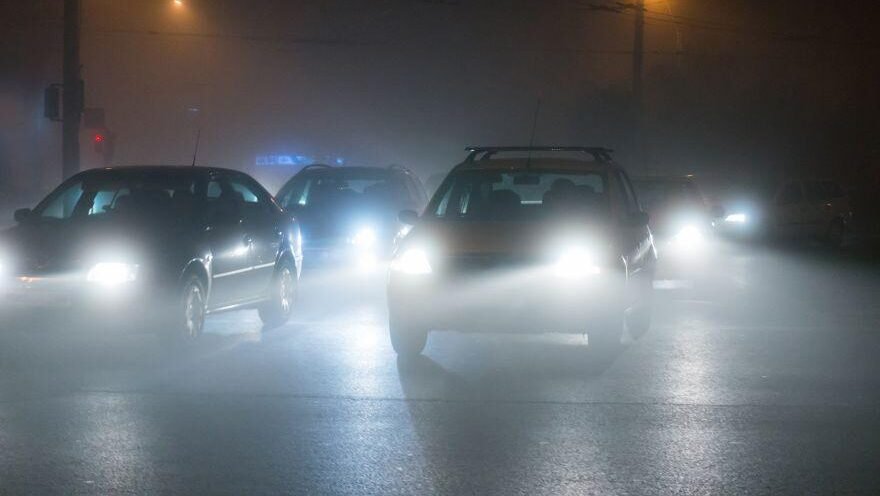Night driving offences in UAE have recently come under the spotlight after authorities revealed that more than 30,000 motorists were fined for headlight violations in the past year. The startling figure has sparked discussions about road safety, driver awareness, and the importance of following traffic laws, especially after dark.
Driving at night is already challenging due to lower visibility and increased chances of fatigue among drivers. When basic safety measures such as using headlights properly are ignored, the risk of accidents multiplies. In this article, we explore why these offences happen, the dangers they pose, and what measures authorities and drivers can take to create safer roads in the UAE.
Why headlight violations are a serious concern
Headlights are not just to help drivers see the road ahead; they also make the vehicle visible to others. In the UAE, where wide highways and high-speed roads are common, a vehicle without headlights is practically invisible in the dark.

Many drivers assume that street lights are enough, or they simply forget to turn on their headlights. Some even deliberately avoid using them to save battery or avoid attracting attention — a highly dangerous practice.
According to the UAE’s Federal Traffic Law, failing to use headlights at night or in poor visibility conditions is a serious offence, carrying fines and black points on the driver’s record.


What are the penalties for night driving offences in UAE?
Traffic authorities in the UAE are strict when it comes to enforcing road safety. Here’s a quick breakdown of the penalties for headlight violations:
- A fine of AED 500 for failing to use headlights in required conditions.
- Four black points added to the driver’s license.
- In severe or repeated cases, the vehicle may be impounded.
These penalties are designed to discourage negligent behavior and reduce the risk of nighttime accidents.
Reasons why drivers fail to use headlights
Despite the clear laws and heavy penalties, the fact that over 30,000 fines were issued shows that many drivers still ignore or forget this basic rule. Let’s look at some common reasons:
- Forgetfulness: Some drivers simply forget to switch on their headlights when moving from a well-lit area to a darker road.
- Lack of awareness: Many new drivers, especially tourists or expats unfamiliar with UAE laws, may not know about the strict rules on headlights.
- Overconfidence: Drivers sometimes believe they can see well enough without headlights, underestimating the danger.
- Technical faults: In rare cases, faulty headlights or electrical issues in the car lead to violations.
- False economy: A few motorists try to save on battery power or assume using fewer lights extends battery life, which is a dangerous misconception.
The dangers of driving without headlights
Night driving offences in UAE, particularly headlight violations, endanger not just the offending driver but everyone on the road. Here’s why:
- Reduced visibility: Other drivers can’t see a car without headlights until it’s dangerously close.
- Higher risk of collisions: With limited reaction time, drivers are more likely to collide with unlit vehicles.
- Pedestrian safety: Pedestrians rely on car lights to judge distance and speed.
- Chain-reaction accidents: On high-speed roads, one crash can trigger multiple secondary collisions.
Authorities believe that strict penalties, combined with awareness campaigns, are crucial to reducing such incidents.
How authorities are addressing the issue
Recognizing the severity of night driving offences in UAE, traffic authorities have launched several initiatives.
Increased patrols
Police units conduct more frequent patrols during night hours to catch violators in real time. This has led to a higher number of fines but also acts as a strong deterrent.
Awareness campaigns
The UAE frequently runs public awareness campaigns on TV, social media, and billboards to educate drivers about the importance of headlights and other safety practices.
Roadside checks
Temporary roadside checkpoints are set up at strategic locations to ensure vehicles are compliant, including checking lights and other safety equipment.
Strict enforcement
Authorities have clarified that there will be no leniency for headlight violations. Repeat offenders face stiffer penalties, including longer impound periods for vehicles.
Tips for safe night driving
Avoiding night driving offences in UAE is straightforward if drivers follow a few basic safety tips:
- Always check headlights before starting: Make it a habit to check all lights (headlights, taillights, indicators) before you begin driving, especially at night.
- Use low beams when appropriate: Avoid using high beams when there’s oncoming traffic to prevent dazzling other drivers.
- Keep headlights clean: Dirty or foggy headlights can reduce visibility even if they are on.
- Adjust your speed: Drive at a safe speed to ensure you can stop within the visible distance ahead.
- Stay alert: Avoid distractions, and be extra cautious for unexpected obstacles or vehicles without lights.
Public reaction and community feedback
The news of 30,000 fines for headlight violations sparked a wave of reactions on social media. Many residents supported the strict measures, stating that they feel safer knowing that authorities are serious about night driving offences in UAE.
Some, however, suggested that better lighting on roads or automatic headlight systems could help reduce such offences. Car manufacturers are already introducing vehicles with automatic lighting, but it’s still the driver’s responsibility to ensure they are working properly.
A few drivers shared personal stories of near-misses with unlit vehicles, emphasizing how dangerous it can be to share the road with motorists who neglect this crucial safety rule.

The role of technology in reducing headlight violations
Technology can play a huge role in reducing night driving offences in UAE. Modern vehicles come equipped with automatic headlights that switch on when it gets dark or when entering tunnels. Some advanced systems even adjust the beam based on traffic conditions to avoid dazzling other drivers.
Moreover, mobile apps and car dashboards can provide reminders if headlights are off when starting to drive at night. As more drivers upgrade to newer vehicles, we can expect a reduction in such violations, but technology alone cannot replace careful and responsible driving habits.
What more can be done?
While current measures have helped catch violators, preventing offences is always better than penalizing them after the fact. Here are a few suggestions:
- Driver education: Emphasize the importance of headlight use during driving lessons and license renewal processes.
- Mandatory vehicle inspections: Regular checks to ensure all lights are functional.
- Reward systems: Positive reinforcement, such as discounts on insurance premiums for drivers with a clean record, could encourage compliance.
- Stricter penalties for repeat offenders: Implement higher fines and longer vehicle impoundment for those who repeatedly ignore headlight laws.
Conclusion
The staggering number of 30,000 fines for headlight violations highlights the seriousness of night driving offences in UAE. While authorities are actively enforcing the law, the responsibility ultimately lies with each driver to ensure their vehicle is safe and visible on the roads.
Driving at night carries inherent risks that can be greatly reduced simply by using headlights properly. By following the rules, staying alert, and maintaining vehicles in good condition, motorists can help make UAE roads safer for everyone.
Follow us on Instagram: UAE STORIES
Read More: Saudi Arabia launches Esports World Cup 2025: “This is a legacy that is going to last for decades”












